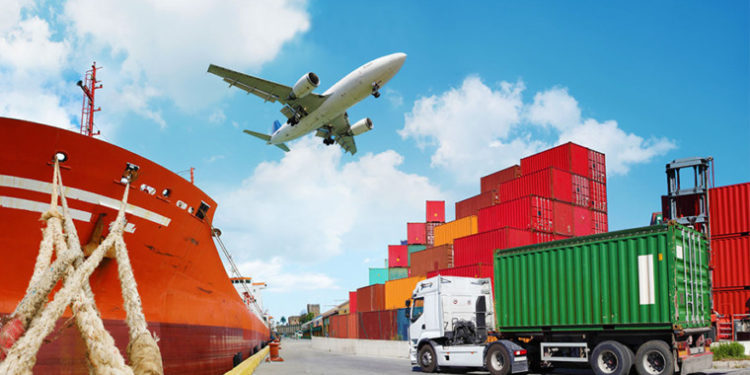Every business that’s involved in the import/export trade understands the critical role of freight forwarders in the supply chain. Deciding on the right freight forwarder can significantly impact your business’s success. Consequently, this comprehensive guide aims to provide valuable insights on selecting the most suitable freight forwarder for your business.
Defining a Freight Forwarder
A freight forwarder is an entity that arranges the entire shipment process on behalf of its clients. This process entails a range of responsibilities, including managing paperwork, administering bookings, overseeing payments, regulating compliance with legislation, and handling customs clearance.
In essence, freight forwarders are akin to travel agents, providing specialized services to streamline the movement of goods worldwide. They come equipped with industry expertise and an in-depth understanding of complex logistics systems and transport facilities integral to global trade.
The Importance of Freight Forwarders
Opting for freight forwarding services is a strategic move to scale your business. If logistics management is a mystery to you, employing the services of a reliable forwarder can eliminate all stress related to international shipping lines.
The complexity of shipping processes amplifies once it goes international. Differences in legislations, customs clearance practices, and permitted goods between regions can make the process significantly more complicated.
Therefore, working with a freight forwarder can simplify these complexities, thus ensuring a smooth shipping experience for your business.
Advantages of Freight Forwarders
Freight forwarders offer a multitude of advantages that are critical for your business:
Easier customs clearance: Freight forwarding companies handle the entire customs clearance process, ensuring your shipments aren’t delayed or stuck.
Cargo insurance: Some freight forwarders provide insurance for your cargo and shipments, offering additional protection if anything goes wrong.
Route optimization: Freight forwarders understand how to reduce shipping costs through route optimization.
Intermodal transportation: Freight forwarders organize transportation by land, sea, and air, reducing the hassle of transferring goods between different modes of transportation.
Issue troubleshooting: Freight forwarders can resolve any issues that might arise, such as lost shipments or customs-related problems.
Specialized support: Freight forwarders have in-depth knowledge of the shipping industry. They can provide relevant industry advice and consent.
Key Considerations When Choosing a Freight Forwarder
Selecting the right freight forwarder requires careful consideration of several factors:
Industry Research
Each freight forwarder has specific sector experience. While this might not be critical for generic, non-perishable goods, it becomes vital when you operate with specific cargo.
Therefore, conducting thorough research and gathering data is crucial to making an informed decision.
Assess Budgets and Requirements
Your company may have specific requirements for shipments and contractual agreements that not all freight forwarders can meet by default. Additionally, internal budget constraints can sometimes force a choice. Therefore, always prioritize financial resources.
Network Check
Most freight forwarders have a network of agents in specific countries, making shipping much simpler. A reputable forwarder guarantees a strong network of agents and a high-quality shipping process, promising efficient goods distribution and cost efficiency.
Review Services and Pricing Structures
Transparency is key when choosing a freight forwarder. A transparent freight forwarder has outlined everything in a structured manner, saving you time and avoiding misunderstandings about specific service availability.
Digitalization and Innovation
Some freight forwarders strive for innovation and digitalization. Forwarders who create digital platforms offer features like online tracking for goods, communication with manufacturers, and data collection, which help optimize your business and production.
Evaluating Track Record and Operation Years
The number of years a freight forwarder has been in operation is also a critical consideration. A company with a long track record has likely weathered various challenges and gained valuable industry experience.
Shipment Tracking Capabilities
The ability to track your cargo is a crucial feature of a reliable freight forwarder. A tracking system indicates an investment in customer service, providing you with up-to-date information about your shipment’s location and status.
Are Freight Forwarders Worth It?
Freight forwarders are an essential tool for any company involved in logistics. While you can manage without a freight forwarder if you only work locally, the system quickly becomes complicated once goods start moving internationally.
Freight forwarders completely lift the troubles of managing goods and shipments off businesses. Their experience in logistics helps them operate within established networks efficiently.
Criteria for Selecting a Freight Forwarder
When selecting a freight forwarder, consider factors such as reliability, industry expertise, transparency, and the range of services offered. Furthermore, ensure that the freight forwarding company has the following:
1: Easily accessible paperwork
2: A wide variety of contacts
3: Third-party corroboration
4: Industry expertise
Comparing Freight Forwarders
Start comparing freight forwarders by researching, comparing industries, and digging into specifics. Check the services offered, and the pricing allotted for them. Finally, look for recommendations, reviews, and case studies.
Conclusion
As your business grows, selecting the right freight forwarder becomes an imperative decision that affects your business operations and customer relationships significantly. Through careful research, consideration of your unique business needs, and a thorough understanding of what a freight forwarder offers, you can make an informed decision that propels your business forward.


![7 Best POS Software in the UK [2026 Edition]](https://todaynews.co.uk/wp-content/uploads/2026/02/7-Best-POS-Software-in-the-UK-2026-Edition-360x180.png)








































































